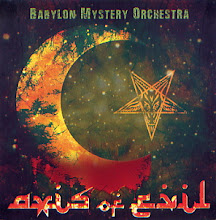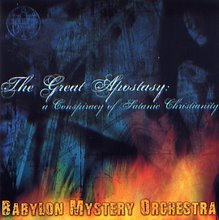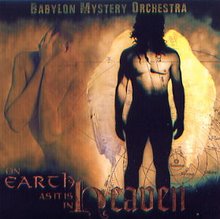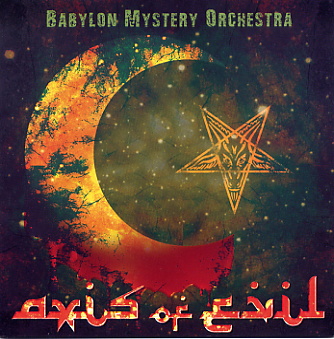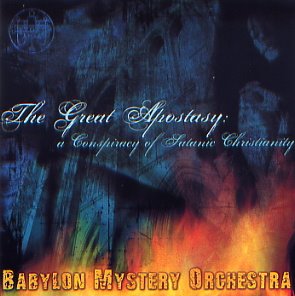HEAVY METAL: UNDERGROUND OR FRATERNITY
A lot has been written, primarily over the internet but also through many traditional and independent publications, regarding heavy metal as an "underground" music genre.. To be sure it no longer holds a dominant status in the sales figures of major record labels, nor does it dominate the touring market as it once did in it's 80's heyday. The question I present is: How did it come to this? At one time metal music was a prominant, even dominant, commercial force.. It is the opinion of this writer that it boils down to two factors: definition and fraternity.
As anyone who peruses the current, readily available media can attest, defining just what constitues heavy metal can be a testy subject. When I was growing up in the late 70's the words "heavy metal" were used to describe one band more than any other: Kiss. This can largely be attributed to the fact that Kiss was a multimedia empire that simply generated more press than anyone or everyone else between 1975 and 1979. However you will not find many current metal fans or media that would consider Kiss or a host of other bands from that era to be metal. Not Led Zeppelin, Blue Oyster Cult, AC/DC, or even Deep Purple would be classified as heavy metal even though they were among the first bands to ever be called by that name. It would appear that only Judas Priest and Black Sabbath are still desireable to retain that label by the current metal community. The latter largely due to the fact that they are credited as giving birth to the genre..
To many, the eighties were a time when heavy metal ruled the world. Certainly it ruled the sales charts and the concert halls. From Motley Crue and Bon Jovi to Guns and Roses and a host of others, you couldn't miss with a sleazy mixture of big guitars, big choruses and even bigger hair. Once again, however, the majority of current metal fans and media would scorn the idea that these commercially successful bands, that were refered to as "hair metal," are even metal at all. I have even read in one of their editorials how a band like Iron Maiden could not be considered metal. Iron Maiden? When and how did heavy metal become so restrictive and who is rewriting all this history? Is this a good thing? As you can probably guess by the tone of this, I don't think its such a good thing at all. As a matter of fact I think it is destroying what was once the very best form of music and making it a haven for self-deluded musicians, and the sycophants who follow them, to wallow in what Gene Simmons once called "musician's disease.."
Back in their glory days rock stars, in general, and metal rock stars, in particular, were treated as demigods. Everyone aspired to be a rock star and live the reward laden lifestyle that went with it. That was part of the magic and fantasy of the music. Perhaps it led to inflated attitudes but it also made for a helluvalottafun. One thing for sure, the musicians and the fans didn't try to make of themselves something they were not. It was sleazy pointless fun to be sure, but the bands were every bit as good as they needed to be and didn't aspire to pompous, pseudoclassical musician status.
Now I see an overwhelming disdain for not just all things commercial (definition: too many people like it), but for anything that can be called successful. If you accidentally sell too many records and become too popular the metal community will turn on you. In fact many metal fans seem to rejoice in the rejection of their music by the mainstream. They seek and encourage more "extreme" and virtually unlistenable bands to guarantee this rejection. It is a veritable culture of rejection, created by self loathers to celebrate their rejection. How did they steal heavy metal away from us? Where was Manowar to defend us against them, for they are definitely "false metal."
This leads to my next point. Heavy metal is not so much an underground form of music as it is a musician's fraternity with a peculiar membership roster. The transition from a guitar dominated song oriented form of music to drum dominant extreme metal with indestinguishable vocals is a conscious choice that reflects the loser mentality of its chosen membership. Heavy metal is no longer empowering music with an "us against the world" mentality. Instead it has become a culture of losers who seek defeat as somehow proof their "elite" status. Simply put: Its too good for this world. A lack of significant sales is considered a badge of honor and the bands are proud to wear it. They celebrate their outsider status and do everything in their power to preserve it. This is especially true for the recording labels that distribute the current brand of metal. These days it's important to garner critical praise from metal's media outlets to guarantee just enough sales generate a small profit without selling too many copies, lest you find yourself banished from the fraternity. Woe to the band that sells enough records to generate any interest from a major label. You will soon be labeled as "mallcore metal" or some other equally dubious name for daring to write music someone actually likes. Better to stick to excessive doses of blastbeats, jerky and numerous time changes, and undecipherable lyrics with cliche satanic imagery. Talk tough and be sure to say F**k a lot between songs and you will be regarded as an upstanding member of this fraternity of the downtrodden.
This seeking of critical praise while shunning the mass adulation that comes with commercial success is a complete reversal of how the metal of yesteryear was percieved. It was music for the people and by the people. All of the fathers of heavy metal were popular with large and fiercely loyal audiences while Rolling Stone magazine and its ilk rained on their parade at every opportunity. As a result there was a large community that loyally supported their bands. It remains to be seen how Rolling Stone's recent endorsement of Mastodon will work against them. Coming as it does from a mainstream publication it will certainly be viewed negatively in the metal world, just as certainly as the short lived relationship with Sony Music was harmful to the ""reputation"" of Cradle Of Filth. But hey, they saw the light and left the major label. ie: They didn't catch on and sell enough records for Sony's liking. Will they be forgiven?
Another aspect of heavy metal's fraternal nature is the tendency of both bands and fans to adopt a particular uniform of appearance. This is nothing new to be sure, but what is interesting is what this current appearance seems to reflect. Earlier incarnations of metal, particularly in the 80's commercial peak, celebrated the rock star as an adonis like idol. Beautiful in every respect, with a slim build, sculpted body and definitely the long hair. As always the fans followed suit, especially the women (groupies or otherwise) who were seeking to look as gorgeous and ravishing as possible. Once again, everything about it was empowering for both band and fan alike. Talk to a fan of the current metal and their will be no shortage of ridicule and scorn as they scoff at the very notion of this empowerment. They want no part of it. Indeed the way they present themselves is the complete opposite. Beauty is replaced with ugliness, with tattoos and piercings to high heaven. Unfortunately its an appearance that perfectly suits the loser mentality that has taken hold of the genre. If rock music was the music of the beautiful angel lucifer, designed to seduce the young, then this new breed of metal is a pure animalistic, demonic swinefest. A swill for the wretched.
The irony of all this rejection worship is that most bands, and the fans and media that support them, have an extremely overrated opinion of the musicianship and musical worth of these bands and their music. In spite of all their "rejectionist" posturing (dare I say...posing), these people actually have the audacity to believe their music is "complex" and beyond the capabilities of other, by definition "lesser," musicians. Like I said before: "Its too good for this world." The final undisputable reality that defines a fraternity is a belief that it is somehow a "cut above the rest," and a delusional belief that others actually admire them. In the case of heavy metal this is a strange sort of musical prestige. Very strange indeed.



